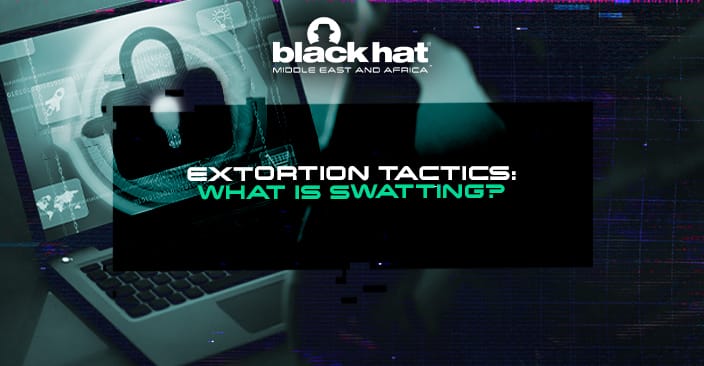
When privacy creates blind spots: the exploitation of privacy-first tech
New research reveals how privacy-first technologies are creating fraud blind spots, as AI-driven attacks scale faster than detection capabilities.
Read More
Threat actors are getting increasingly creative with their extortion tactics, with triple extortion strategies becoming more common.
And we’re also seeing new cases of swatting: an extortion tactic that leaves targets with no choice but to pay a ransom, or suffer intolerable consequences if they don’t.
‘Swatting’ involves a threat actor making false reports to emergency services, most commonly the police. They do this to trigger the dispatch of (often armed) law enforcement officers to the target’s location, under false pretences – for example, reports of bomb threats or criminal allegations.
As a result, a ransomware situation escalates rapidly and in a way that’s deeply alarming for the victim, and puts immense pressure on them to pay the ransom. It introduces the potential for real-life danger and violence into the cyberattack vector, and can put lives at risk.
In essence, it’s prank calling – but with dangerous consequences.
Unfortunately, yes.
These recent examples – and many more – highlight the fact that threat groups are increasingly relying on swatting to cause real distress and disruption, and force victims to respond to ransom demands.
It’s an alarming trend – and increased awareness, along with preventative measures, are needed.
Like many social engineering strategies, swatting is very hard to predict and prevent. But the cybersecurity industry can support with measures including:
Swatters will continue to swat. But collaboration and information-sharing between targets, police, and cybersecurity experts can help to build a clearer picture of patterns within the trend, and develop more effective preventative measures in the future.
Join the newsletter to receive the latest updates in your inbox.

New research reveals how privacy-first technologies are creating fraud blind spots, as AI-driven attacks scale faster than detection capabilities.
Read More
Cybersecurity founders share how Black Hat MEA helps them test ideas, prove product value, and grow their business.
Read More
Cybersecurity is now a leading barrier to financial innovation. New research explains why fraud, legacy systems and risk are slowing payments progress.
Read More